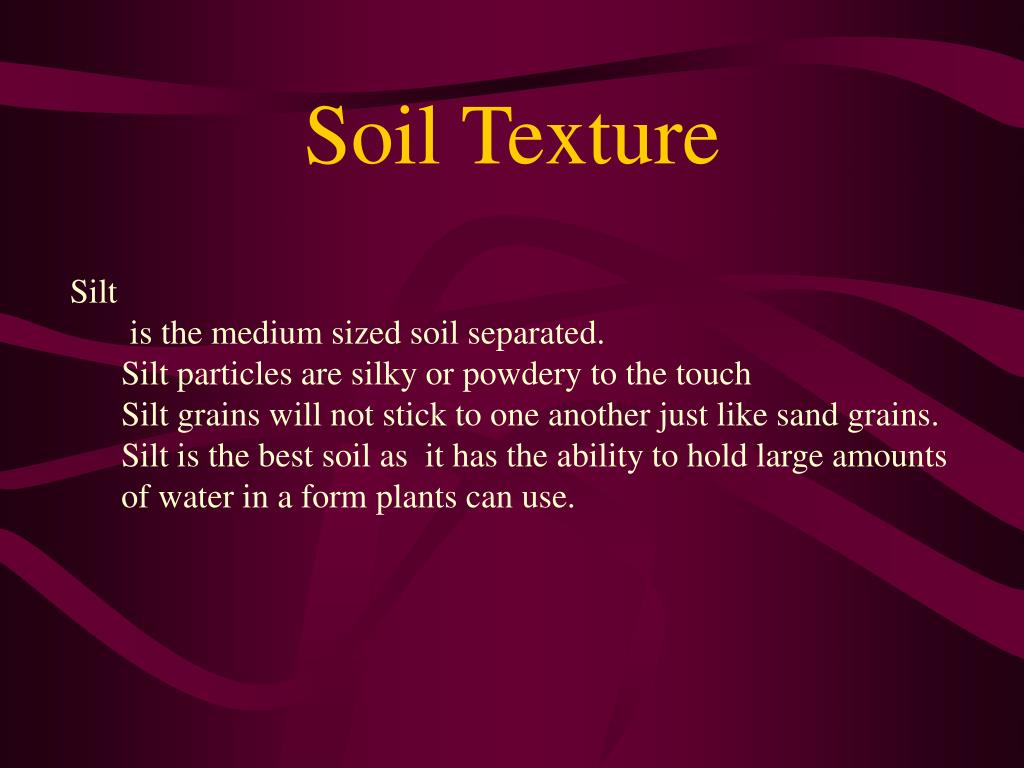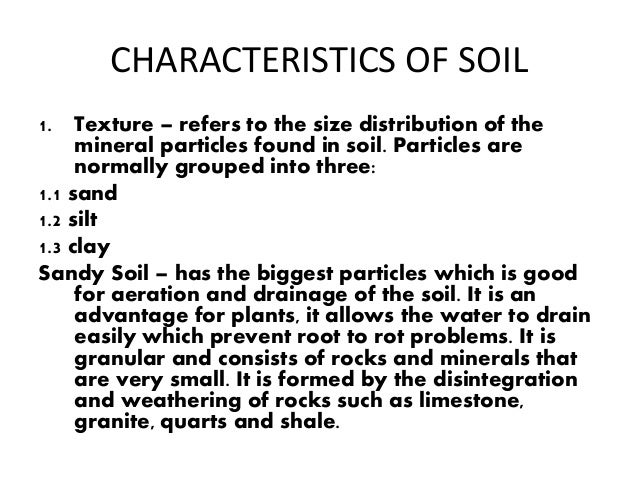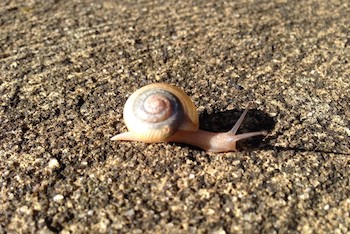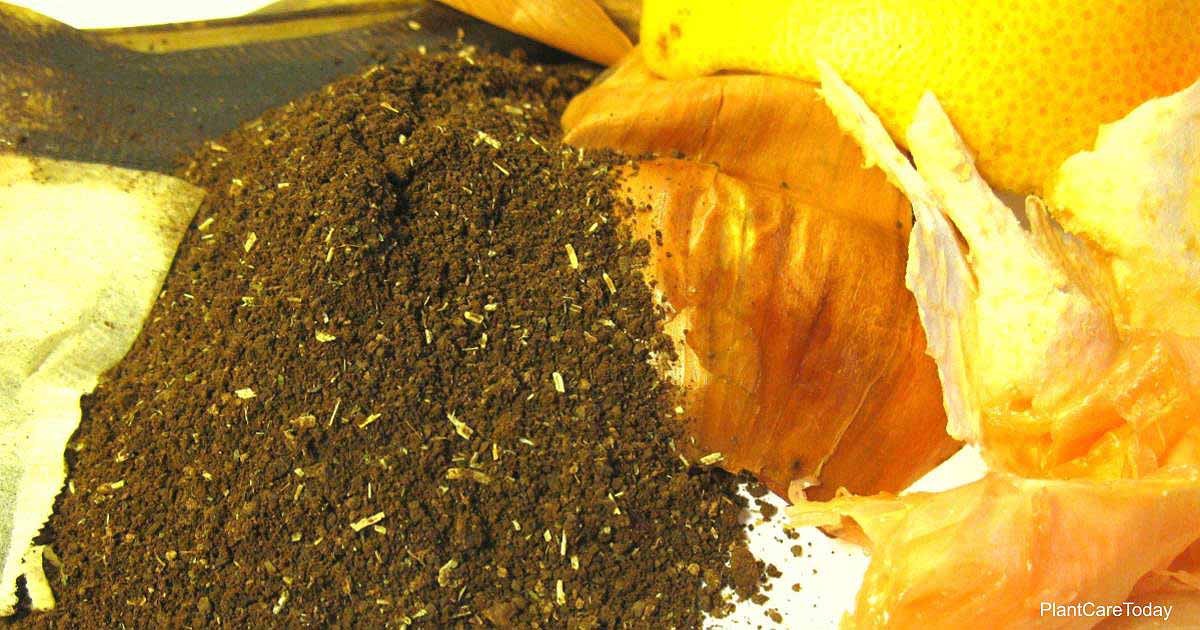41 why is silt important in soil
Why Is Silt Important? - Lisbd-net.com Why Is Silt Important? Silty soil is usually more fertile than other types of soil, meaning it is good for growing crops. Silt promotes water retention and air circulation. … In many parts of the world, agriculture has thrived in river deltas, where silt deposits are rich, and along the sides of rivers where annual floods replenish silt. What is Soil, its Importance and What Are Different Layers of Soil ... Soils are important is so many ways. The bottom line is that soil is essential for life because it provides the medium for plant growth, acts a filtration system for surface water, maintains the balance of atmospheric gases, stores carbon, and is a habitat for several organisms. Here are the detailed reasons rendering the soil important.
The Dirt on Dirt -- Why is Soil Important? - Exploring Nature The rotting organic matter helps the soil hold water so it is good for growing plants. In turn, growing plant roots anchor the topsoil and keep it from being blown and washed away by weather. The top two layers are very important to life on Earth. They are full of living things like earthworms, insects, fungi and bacteria.

Why is silt important in soil
Importance of Clay in Soil | eHow Clay is important in soil structure because it helps to attract and retain the nutrients key to plant growth. It also holds water to keep the soil moist. ... There are three common types of soil: sand, silt and clay. Sand has the largest particle size, while clay has the smallest particle size. It has a smooth texture and tends to be very dense. Silty Soil Suggestions: Amending & Improving Silt - Epic Gardening Silt in flooded rivers is mixed with all sorts of naturally occurring organic materials which makes the sediment fertile. Your in-ground soil does not get this natural amendment. This is why it is important to manually condition your soil type with organic materials to create more stable soil aggregates. Why is Soil Important? - TruBeef Organic Soil is important to every aspect of human, animal and plant life on earth. Soil is important as it sequesters atmospheric carbon therefore reducing greenhouse gas. Healthy soil retains more water and also acts as the preliminary filter for drinking water. Soil is responsible for many important medicines we take for granted such as penicillin.
Why is silt important in soil. Why is soil so important? - World Future Council It provides essential nutrients, water, oxygen and support to the roots, all elements that favour the growth and development of plants for food production. The soil hosts a big community of diverse organisms that improve the structure of the soil, recycle essential nutrients, helps to control weeds, plant pests and diseases. Why is Soil Structure Important in Agriculture? The structure of the soil is often confused with the soil texture. Soil texture, on the other hand, refers to the relative proportions of sand clay and silt found in the soil relative to each other. That is, it shows how much sand, clay, and silt a soil contains. Both are important because they affect the drainage and air intake capacity of the ... Why Is Silt Important In Soil? - Lisbd-net.com What is the importance of silt soil? It promotes water retention and air circulation. The black silt soil is good for cultivation, but too much clay can make soil too stiff for plants to thrive, therefore farmers using silt should ensure proportionate input of sand, silt and clay," suggests Sudhir Verma, an officer of the agriculture department. Types of Soil and Their Importance to the Lake - Geist Conservancy District Even though water can drain directly through individual silt particles, the soil still retains a lot of moisture. Silt is important to the lake's health because it allows water and air to flow naturally through its individual particles. It also contains a lot of nutrients that plants and animals require. Loam
silt | National Geographic Society Silt is a solid, dust-like sediment that water, ice, and wind transport and deposit. Silty soil is slippery when wet, not grainy or rocky. The soil itself can be called silt if its silt content is greater than 80 percent. When deposits of silt are compressed and the grains are pressed together, rocks such as siltstone form. Silt is created when roc... What is Silt Soil? - Gardenality.com Silt is commonly found in floodplains and is the soil component that makes mud. Soils with a lot of silt make excellent farm land, but erode easily. This is the soil blown away in dust storms and carried down stream in floods. Silt soil is similar to loam soil but contains smaller ratios of both sand and clay particles. 25 Reasons To Be Grateful For Soil: Why Soil Is Important Just like how a foundation for a home is critical, healthy soils act as a foundation for plants by supporting plant roots and keeping plants upright for growth. 3. Soils act as a pantry for plants, storing and cycling essential nutrients and minerals that plants need to grow. 4. Soils store water for plants. Why silt is so important for the Mekong | The Third Pole Sep 13, 2016 · Why silt is so important for the Mekong Cooperation between countries to keep silt flowing down the river will bring huge agricultural and economic rewards Sediment loss from dams and sand mining has devastating impacts on agriculture the economy in the basin (Photo by Sputnik Mania) Marc Goichot September 13, 2016
Why is silt important in soil? - Answers Why is silt important? Silt is important because it makes rich soil which is good for growing crops. What does silt soil have? it has silt and soil What is silt soil in Tagalog? Tagalog Translation... Advantages And Disadvantages Of Silt Soil - DripMotion May 25, 2022 · Silt soil is a very fertile soil and it is used to grow plants in agricultural practices. It is said that silt soil has a high exchange capacity, as the amount of nutrients that are available for plant roots are extremely high. Because of this, it promotes an excellent environment for the growth of crops, which gives rise to increased yields. Silt - Wikipedia Silt is detritus (fragments of weathered and eroded rock) with properties intermediate between sand and clay. A more precise definition of silt used by geologists is that it is detrital particles with sizes between 1/256 and 1/16 mm (about 4 to 62 microns). This corresponds to particles between 8 and 4 phi units on the Krumbein phi scale. What is the importance of silt soil in the environment? Sep 26, 2020 · Why is silt good for farming? Silty soil is usually more fertile than other types of soil, meaning it is good for growing crops. Silt promotes water retention and air circulation. Too much clay can make soil too stiff for plants to thrive. Agricultural soil is washed away into rivers, and nearby waterways are clogged with silt.
What Is Silt, And How Does it Impact The Environment? Silt is somewhere between the size of sand and clay, and is an important component in the sedimentary dynamics of rivers. Silt comes in several forms. It might be found in the soil underwater or as sediment suspended in river water. Silt is geologically classified by its grain size and texture going through a sieve. Letters are assigned to the grai...
Why is Soil so important - Farming Portal Soil is important in providing an adequate water supply and maintaining its quality. Soil and the vegetation it supports catch and distribute rainwater and play a key role in the water cycle and supply. Soil distribution can impact rivers, lakes and streams, changing their shape, size, capacity and direction. 4.
Understanding the Importance of Soil and All It Does for Your Garden Test It. With an electronic soil tester, you can check fertility and pH (which is the measure of whether a soil is acidic, neutral or alkaline), then add fertilizer or another soil amendment if needed. Most plants like a slightly neutral to slightly acidic pH of 6.0 to 7.0. To acidify the soil, add sulfur. To make it more alkaline, add garden lime.
When should you use silt soil? | HowStuffWorks Soil classification is based on the soil particles' texture and size. Most soils are composed of sand, silt and clay. While silt and chalk have similar textures, silt is easier to use and more versatile than chalk. Silt's fine particles are what give it a slippery, smooth texture, and it's these particles that make it easy to compact silt soil.
5 Reasons Why Soil Quality Is So Important For Trees - Citygreen Here are the five reasons why soil is important for trees: Soil provides a foundation for tree growth. Soil stores the necessary amount of water for trees. Soil hosts biodiversity. Soil supports the trees' roots in accessing nutrients and minerals. Soil filters out the pollutants that can harm trees. In urban locations where healthy soil is ...
Why is Soil Important? - TruBeef Organic Soil is important to every aspect of human, animal and plant life on earth. Soil is important as it sequesters atmospheric carbon therefore reducing greenhouse gas. Healthy soil retains more water and also acts as the preliminary filter for drinking water. Soil is responsible for many important medicines we take for granted such as penicillin.
Silty Soil Suggestions: Amending & Improving Silt - Epic Gardening Silt in flooded rivers is mixed with all sorts of naturally occurring organic materials which makes the sediment fertile. Your in-ground soil does not get this natural amendment. This is why it is important to manually condition your soil type with organic materials to create more stable soil aggregates.
Importance of Clay in Soil | eHow Clay is important in soil structure because it helps to attract and retain the nutrients key to plant growth. It also holds water to keep the soil moist. ... There are three common types of soil: sand, silt and clay. Sand has the largest particle size, while clay has the smallest particle size. It has a smooth texture and tends to be very dense.











0 Response to "41 why is silt important in soil"
Post a Comment